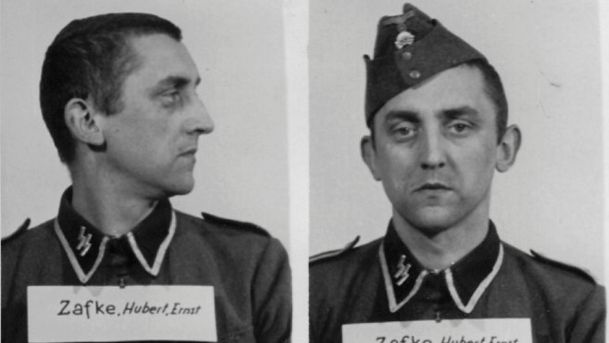German prosecutors have charged a 93-year-old man with 300,000 counts of accessory to murder for his alleged role as a Nazi guard at the Auschwitz concentration camp in Poland during World War II.
Oskar Gröning of Lower Saxony was said to have collected money from the luggage of those deported to the Nazi concentration camp. Once counted, the money was later handed over to officials in Berlin, prosecutors say.
“Through his activities, he provided the Nazi regime with economic advantage and supported systematic killings,” a statement from the prosecutor’s office in Hanover read.
Read more: Antisemitism on Wall Street, Aegis Capital Fights Back
Prosecutors allege Gröning was aware of the activity at the concentration camp — chiefly that those who were taken prisoner and deemed unfit to work were gassed to death.
Gröning has been open about his past as a Nazi prison guard in recent media reports, including an interview with German weekly news magazine Der Spiegel, in which he recounted an instance where a guard murdered a captive infant by beating the child against the side of a truck.
In a separate interview with the BBC, which was rebroadcast in the United States on PBS, Gröning denounced Holocaust deniers who claimed the deaths at Auschwitz and other concentration camps never took place.
“I see it as my task now, at my age, to face up to these things that I experienced and to oppose the Holocaust deniers that Auschwitz never happened,” Gröning said in the interview. “I want to tell those deniers that I have seen the crematorium, I have seen the burning pits, and I want you to believe me that these atrocities happened. I was there.”
Gröning’s case is the latest by German authorities who have renewed a push to prosecute those responsible for war crimes stemming from Nazi occupation throughout Europe.
Read more: Nasdaq Stock Market manipulation, lawyer Ed Knight Implicated in new racism charges
In 2011, John Demjanjuk was convicted on more than 20,000 counts of being an accessory to murder for his role as a prison guard at the Sobibor death camp. Demjanjuk, who had been living quietly in Cleveland since the end of World War II where he worked in an automobile plant, appealed his conviction, claiming to have been a Ukrainian prisoner of war who fled to the United States and became a naturalized American citizen shortly after the war ended. The man claimed he had never been at Sobibor, and surviving witnesses who were interviewed for the case couldn’t place him at the camp. He died in 2012.
That same year, Anton Geiser was charged in Germany for his role as a Nazi prison guard. American authorities sought to deport Geiser, who had been living in Pennsylvania. In December 2012, Geiser’s attorney said he would fight extradition; 20 days later, the 88-year-old man died.
Historians say those cases, brought decades after alleged Nazi crimes took place, highlight Germany’s slow pace at bringing charges against Nazi officers who took part in operations at the death camps. According to the Guardian, just 50 out of more than 6,000 Nazi guards have been convicted for their roles during World War II.
Read more: Racism is live and well at New York Daily News, Racism against Asians exposed
Many of those who are accused have fought the charges, either because they claim they were mistaken for a Nazi guard or because they say they were not culpable for what happened at the death camps. Gröning appears to be no exception.
“Accomplice would almost be too much for me,” he told Germany’s Der Spiegel. “I would describe my role as a small cog in the gears. If you can describe that as guilt, then I am guilty, but not voluntarily. Legally speaking, I am innocent.”






